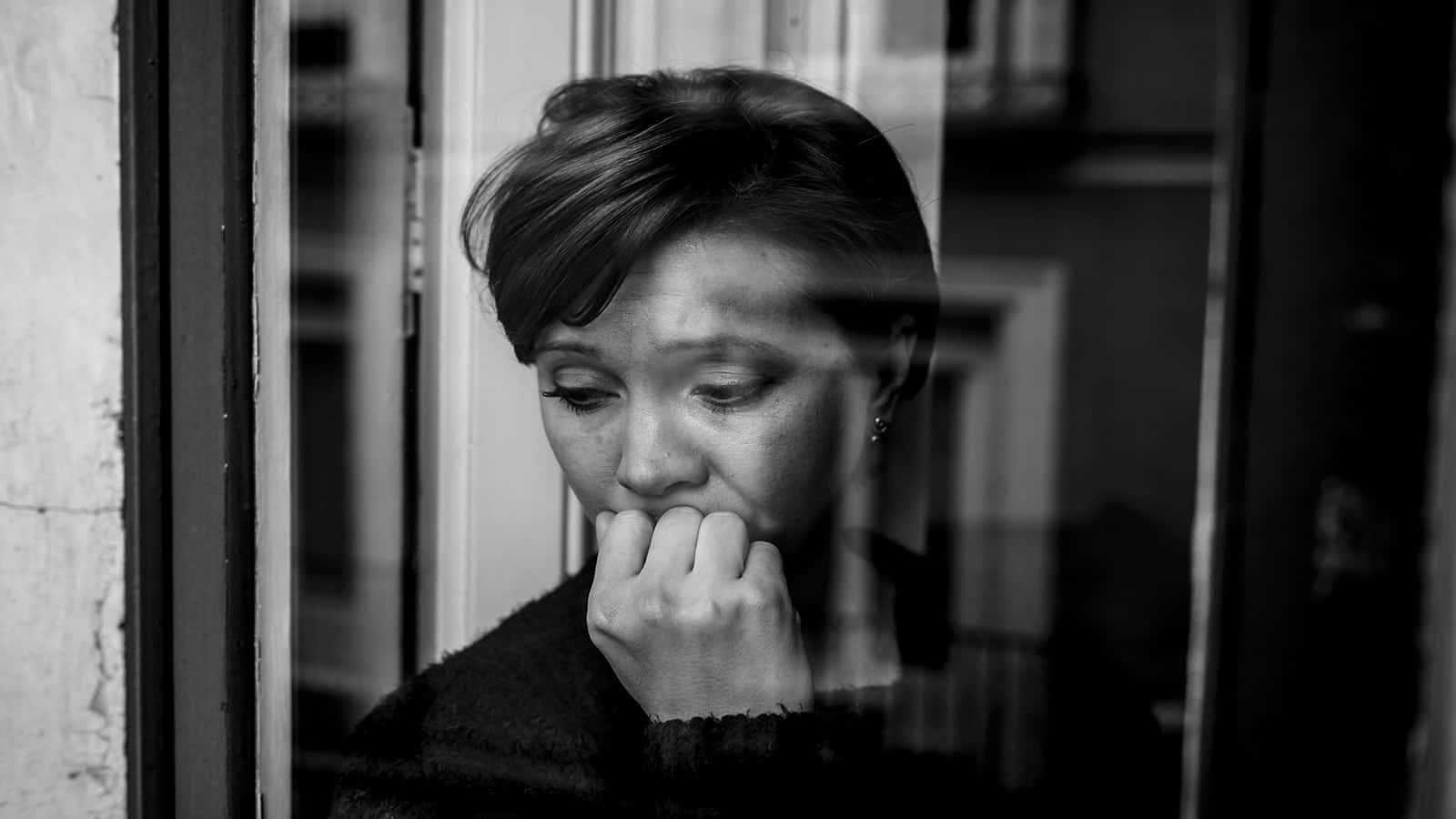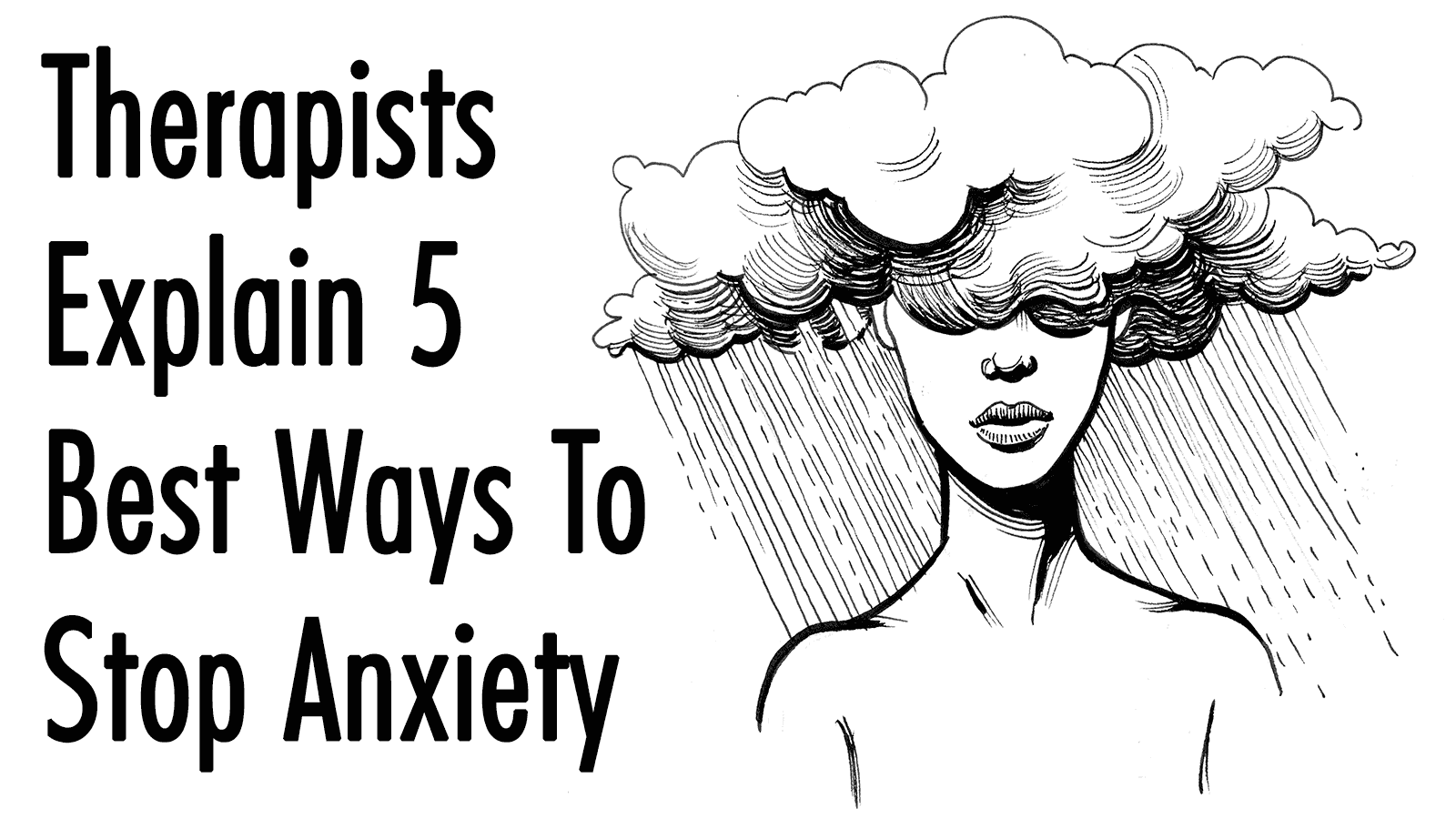Do you hide your anxiety from the world?
Anxiety disorders are the most common mental disorder in the world. In the United States, 40 million adults, or 19.1% of the population, struggle with it. Anxiety can range from mild to debilitating and can present with various symptoms. The most common symptoms of anxiety include:
- Feeling restless or on edge
- Trouble sleeping
- Feeling exhausted
- Difficulty concentrating on simple tasks
- Worrying excessively, even about minor chores and responsibilities
- Muscle tension
- Irritability
- Problems controlling feelings of worry
- Racing thoughts
These are only a few symptoms of anxiety. Some people suffer from all of them, while others only deal with one or two symptoms. However, getting help for anxiety if it affects major parts of your life, such as school or work, is key to overcoming it. Unfortunately, only a little above a third of all people suffering from anxiety seek help, even in developed countries.
So, you have likely met someone suffering from anxiety who appears completely normal on the outside. This appearance of control can help the person feel less vulnerable. But it can ultimately lead to a breakdown later on.
The consequences of hidden anxiety
Here’s what happens when someone tries to hide their anxiety:
Living with anxiety is like being followed by a voice.
It knows all your insecurities and uses them against you.
It gets to the point when it’s the loudest voice in the room.
The only one you can hear.
– Unknown
It might feel like they’re controlling it, but it’s taking them over.
If someone attempts to hide their anxiety, they will probably look pretty normal to others. People who hide their anxiety might have a higher-functioning version of the disorder where they can still maintain adult responsibilities. However, inside, they are an absolute wreck. They have learned to hide their symptoms so well that no one would know they even have an anxiety disorder.
Their mask helps them get through life, but it takes an emotional toll on them nonetheless.
Those with anxiety disorders who mask their feelings might feel like they have a good grip on their disorder. However, they have likely just shifted their focus to something else, such as work, to avoid dealing with their feelings. They will come to the surface eventually, and the more the emotions build up, the worse the breakdown will be later.
They might fidget a lot or seem scatterbrained.
People who try to hide their anxiety need some sort of outlet for their tension, so they may seem restless and move around a lot. They might twiddle their thumbs, move their feet, twirl their hair, or engage in some other nervous habit. They may also have difficulty maintaining conversation and move on to another topic quickly. Their brain runs a mile a minute, so they just have a hard time keeping up with it in the real world.
They may sweat a lot.
According to the International Hyperhidrosis Society, nearly 32 percent of people with social anxiety experience excessive sweating. While it can occur in people with generalized anxiety, sweating is more common in those with SA or panic disorder. Because anxiety increases cortisol and adrenaline, your body reacts by making you sweat to release some of that tension. It’s a natural response to a threat, but sweating can cause embarrassment and shame in the modern world.
So, if a person with anxiety suffers from hyperhidrosis, he or she might appear flushed, have sweaty palms, or wear clothing that hides sweat stains more easily.
People that try to hide their anxiety may seem controlling.
Because a person that suffers from anxiety often feels out of control in regard to their own mental state, they might exert control over others. Many people with anxiety are perfectionists, so they might need things a certain way or attempt to micromanage other people. If they suffer from OCD, any slight change in their routine or environment may send them into a frenzied state.
They may suffer from depression.
Anxiety and depression are often co-occurring disorders. According to the Anxiety and Depression Association of America, nearly 50% of those diagnosed with depression also have an anxiety disorder. There is no evidence that one disorder causes the other, but many people tend to suffer from both.
However, for someone who mainly suffers from anxiety, depression can worsen their symptoms and cause them to withdraw due to feeling overwhelmed by their unexpressed feelings.
The risk of substance abuse increases.
People with anxiety disorders are two to three times more likely to have a substance abuse problem than the general population. Furthermore, about one-fifth of Americans with an anxiety disorder have an alcohol or other substance abuse disorder, according to the ADAA. Alcohol, marijuana, or other drugs might help the person numb their feelings in the short-term, but many people who use these substances become addicted to them.
This addiction can lead to other problems, such as physical health problems, frequent absences from work or school, isolation, and more. Attempting to manage thie mental health disorder by self-medicating can result in more frequent hospitalizations due to an overdose, and possibly even death. If someone you know suffers from substance abuse, they should be evaluated by a mental health professional in case they have underlying anxiety or another mental disorder.
They may avoid what triggers them.
If someone suffers from anxiety, they might show avoidant behaviors such as isolating themselves or steering clear of certain people or environments. If they feel anxious in crowds, for example, they may avoid malls, parades, concerts, or other places where a lot of people congregate. In the worst-case scenario, they might develop agoraphobia, or a fear and avoidance of all places that cause or trigger anxiety. This might result in them never leaving the house unless they absolutely have to.
Those who try to pretend that they don’t have anxiety may find that they can no longer function normally. This usually occurs when someone doesn’t get help for their disorder and tries to manage it on their own.
People who try to hide their anxiety might become workaholics.
Those with high-functioning anxiety might work longer hours to avoid dealing with their symptoms. When they work, they have something else to focus on, so it becomes another addiction. While this is certainly a healthier addiction than drugs or alcohol, it can become unhealthy if the feelings causing the obsession aren’t properly dealt with.
They may have unhealthy eating habits.
Many people with hidden anxiety use food as a coping mechanism. Unfortunately, a study found that up to two-thirds of people with eating disorders have a co-occurring anxiety disorder as well. Furthermore, 42% of those with an eating disorder had developed an anxiety disorder during childhood, well before symptoms of an eating disorder started to appear.
People with hidden anxiety may have anorexia, bulimia, or binge eating disorder. Many people with anxiety have difficulty in maintaining a healthy weight due to unhealthy relationships with food. For example, if they had a stressful day at work, they might unwind with a pizzaa and pint of ice cream instead of taking the time to make a healthier meal.
Since some people with anxiety use detrimental coping mechanisms, food is often no exception.
Relationships suffer.
People who try to hide their anxiety may lash out or withdraw from friends and family. Anxiety takes a lot of energy out of a person. If someone goes undiagnosed and untreated, they often have an even harder time maintaining their relationships. More arguments between spouses may occur, and friends’ messages might not get responded to. Anxiety can definitely become all-consuming, and a person who tries to hide it will usually have turbulent relationships because of this.
They may start missing work or school.
When someone tries to hide their anxiety, they may need extra time away from their responsibilities to cope. Work or school might become more difficult to attend, and the person may start missing multiple days at a time. They don’t feel comfortable telling their boss or teachers about their disorder. Therefore, they may simply avoid the situation entirely so they don’t have to deal with the shame or embarrassment. According to the American Psychiatric Association, anxiety disorders are associated with decreased job performance and short-and long-term disability and costs.
Final thoughts on coping with hidden anxiety
As you can see, when someone tries to hide their anxiety, it can causedisruption in many aspects of their life. While this condition is highly treatable, many people continue to suffer in silence. If you deal with anxious feelings, please seek professional help. The relief you’ll feel by getting tools to manage your disorder will make the possible shame and guilt you’ll feel worth it.
In today’s fast-paced world, you must remember to take care of yourself first. The world can wait, but your health can’t.
















 Community
Community

